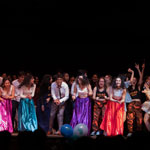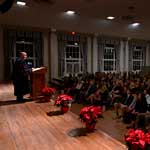
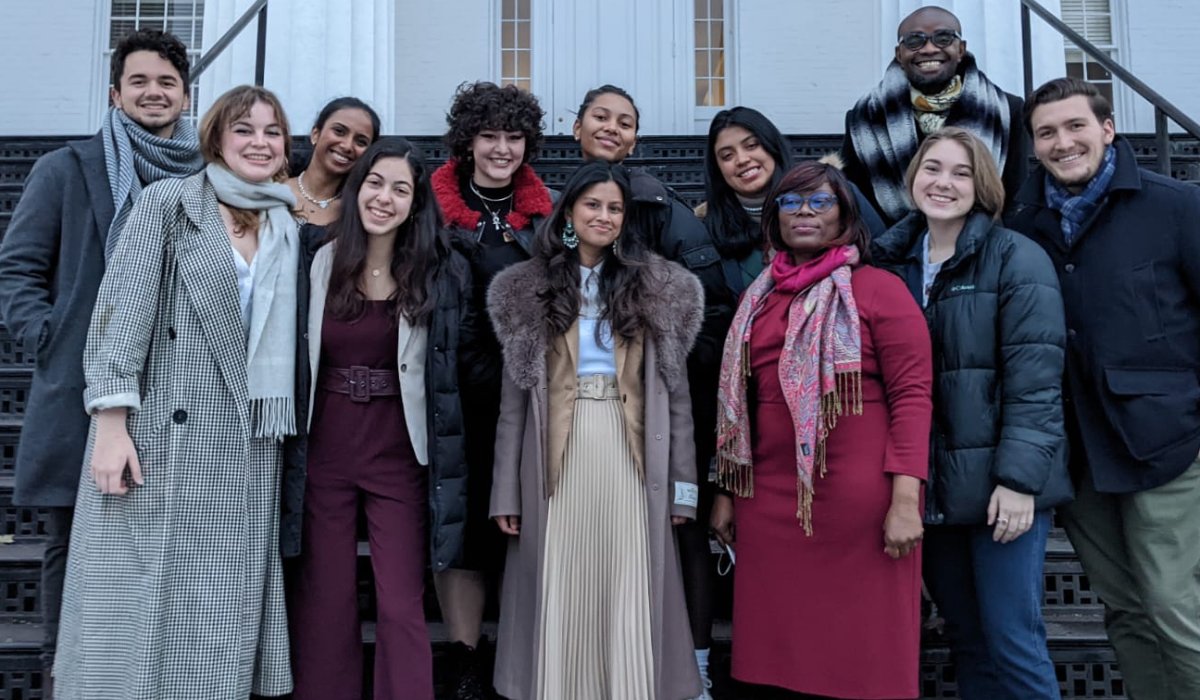
Following a week of intensive reflection, discussion, and collaborative ideation, Gettysburg College’s inaugural Peace and Justice Transformative Leadership Fellows return to their spheres of the world—from Arizona to New York, Canada to the capital of the United States, and beyond—as leaders of peace, justice, and change.
Leveraging the foundational leadership skills they learned here, each fellow will now embark on a yearlong social change project that they envisioned while in Gettysburg.
“It’s very much critical praxis, which is the synergy between theory and action,” said Fellowship Co-Director Daniel Jones ’22, who is also president of the Peace and Justice Student Council on campus. “Through the various sessions we held during the Transformative Leaders Fellowship, we didn’t just give the students the tools to be leaders and changemakers. It was also a priority of ours to teach them how to use those tools, then giving them the space they need to figure out how to best employ and further develop them in their own home communities.”
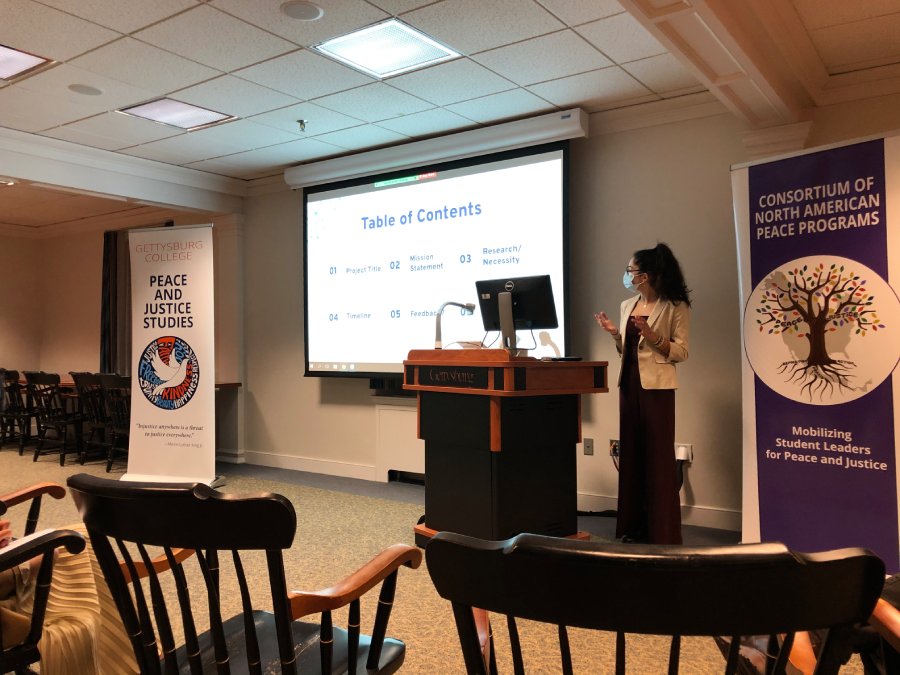
The social change projects being implemented by the cohort of 11 peace and justice undergraduate leaders from around the world include:
- Shivani Thanneer of New York University – Atypical not Unnatural: A Collective to Build Resilience in BIPOC Youth
- Sherna Benjamin of Huntington University – Bridging the Gap: Strengthening the Capacity of Communities of People for Collective Liberation and Healing
- Elisa Pugliese of the University of Toronto – Connected to Thrive: Commitment to Developing a Toolkit for Survivors of Intimate Partner Violence (IPV) Living in Rural Communities in Ontario, Canada
- Abigail Chase of American University – Fatelines Collective: A Response to a Rift Between the Artistic and Activist Communities in the District of Columbia
- Dora Mendelson of Colgate University – A Mutual Aid Approach to Insulin/Diabetic Device Access and Support
- Luz Escobar Zapata of Villanova University – Philadelphia Latinx Youth Movement: Cultivating a Well-Trained and Resourced Philadelphia Latinx Youth Community
- Selena Alamir of John Carroll University – Project Purify/Proyecto Purificar: Water Inequality in Honduras
- Noor El-Gazairly of George Washington University – The Rosetta Coalition: Radical Community Building and Mobilization for Artifact Repatriation
- Savannah Prida of Arizona State University – Saturday School: Going Beyond the Garden: A Place Where Community Can Gather to Attend Workshops on Relevant Skills Training Led by Individuals in South Phoenix
- Hyacinth Tauriac of Lasell University – Social Media and Me: Seeking Empowerment Through Social Media Literacy and Ourselves
- Habiba Choudhury of Wellesley College – Socioeconomic Justice Proposal: Empowering and Investing in Local Small Businesses Through Community-Based Action
“There are a number of peace and justice studies programs across higher education; however, very few of them teach the practical skills necessary to lead a change project in this way,” said Executive Director of the Garthwait Leadership Center Andy Hughes. “We have a wide and deep approach to leadership development that helps students quickly and productively identify their passions, narrow their focus, and build a plan for action. I believe this phenomenal fellowship can help demonstrate to the world our commitment to leadership for social change.”
Hughes is also co-director of the fellowship, alongside Jones and Prof. Hakim Mohandas Amani Williams, who holds the Daria L. and Eric J. Wallach Professorship of Peace and Justice Studies. Together, they created the fellowship to serve as a laboratory for leadership development among undergraduates in North America and neighboring countries—plugging undergraduate students into important dialogues about change, where Williams said they belong and are much needed, but are too often overlooked.
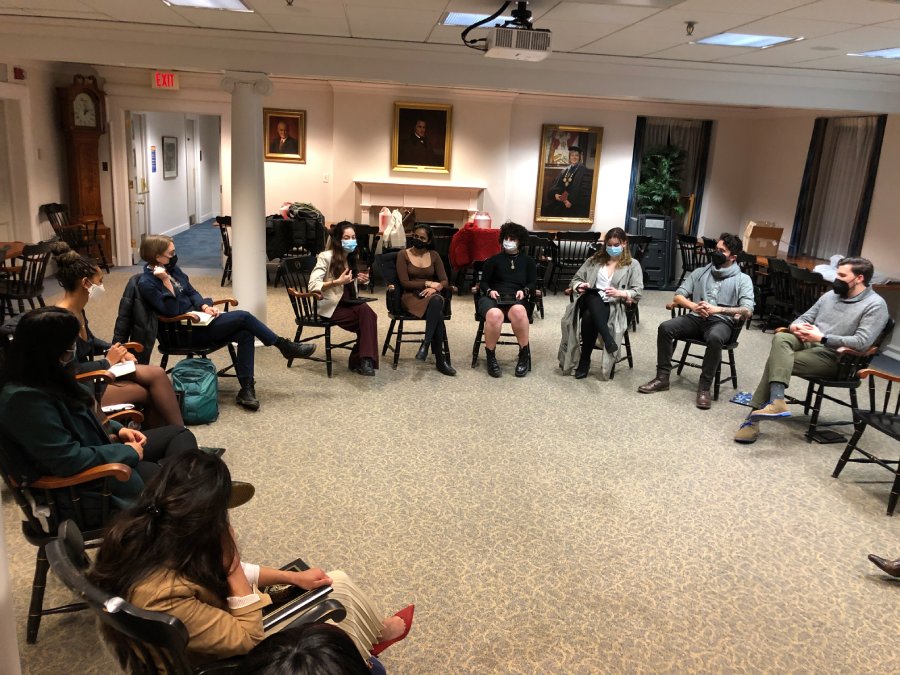
The actionable and ongoing efforts that were built from students’ ideas during just one week at Gettysburg College, in many ways, speak for themselves.
“We see this as well right here at Gettysburg College every day through our own passionate students,” Williams said. “We don’t have the time to wait until undergraduates are older or until they acquire more skill sets and experiences. We don’t have the time to say, ‘Undergraduates, wait on your turn.’ We need them—their perspectives and ideas. We need them now.”
“We see this as well right here at Gettysburg College every day through our own passionate students,” Williams said. “We don’t have the time to wait until undergraduates are older or until they acquire more skill sets and experiences. We don’t have the time to say, ‘Undergraduates, wait on your turn.’ We need them—their perspectives and ideas. We need them now.”
– Prof. Hakim Mohandas Amani Williams
Uniquely positioned on hallowed grounds where war once raged, Gettysburg College is a place where history meets the present. When looked at through a critical lens, it creates room for critical dialogues that shape the future—like those had during the Transformative Leadership Program. The College’s deep sense of place energized many fellows, who noted Gettysburg as the perfect place to talk about peace and justice.
“Some of our important faculty speakers such as Dr. [Peter] Carmichael and Dr. [Scott] Hancock focused on Gettysburg itself in their workshops, and Dr. Carmichael even took the fellows on a tour of the battlefield, showing them the significance of place and of the history here. They did this to showcase that while history cannot be unlived, we can continue to critically critique and learn from it so that it does not repeat itself,” Jones said.
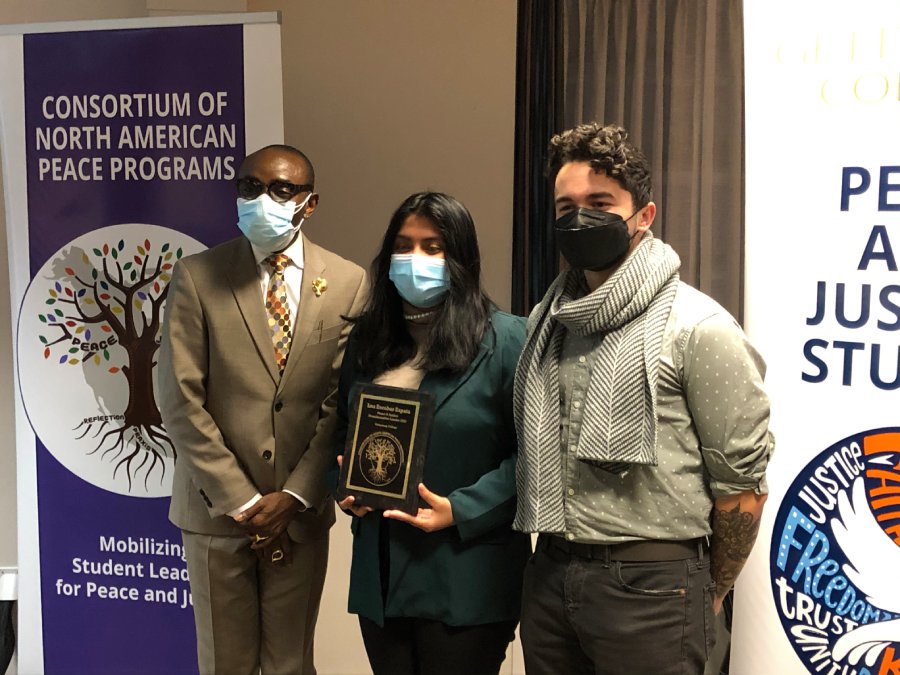
Continuing the momentum on campus from the Inaugural Peace and Justice Transformative Leadership Program, Jones said the Peace and Justice Student Council will lead by example both on and off campus. The council will facilitate change-sparking dialogues, including during Peace and Justice Week in March, and, in partnership with the Consortium of North American Peace Programs, Jones and other passionate community members hope to grow this program in a way that establishes the College as a gathering place for global leaders and learners.
“We want to bring more individuals from around the world to Gettysburg College to foster a critical sense of internationalism among the students we train to be innovative leaders of peace and justice,” Williams said. “I believe Gettysburg College is an ideal place to be a training ground for not only student leaders, but for business leaders, teachers, and other professionals from around the country and the world to understand war and polarization—to procure the skills for tackling these issues in today’s times. Working on this program was just a small way of inching toward that larger mission.”
By Molly Foster
Photos courtesy of Mike Baker and Gretchen Natter
Posted: 02/01/22

